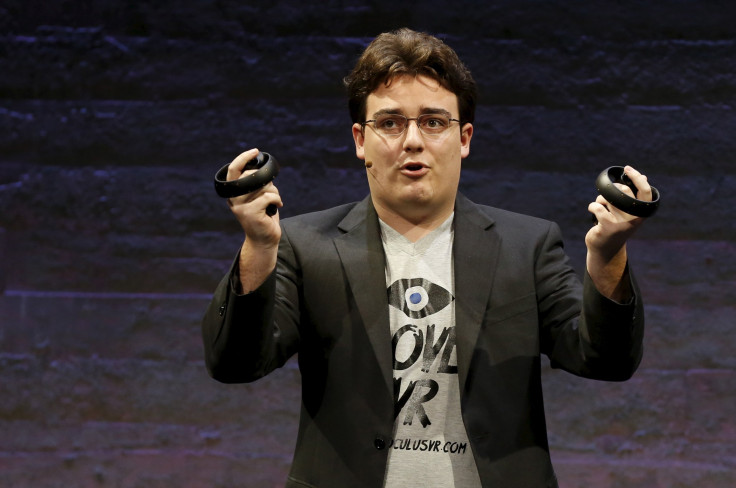Oculus Founder Palmer Luckey At Tokyo Game Show: 'I Have New Company'

Oculus founder Palmer Luckey has kept a lower profile in recent months, but the virtual reality industry figure is still working in the business.
In a talk at the Tokyo Game Show, Luckey said he’s working on a new virtual reality project, though details were scant. With his new projects, Luckey expressed a desire to move beyond work for Oculus only and said that he wants to just be thought of as “a VR person.”
"I have a new company,” Luckey said. “I can't talk about my projects too much yet, but I'm still working in the virtual reality industry on some very exciting things.”
Check out Luckey’s full appearance in his talk here:
In the past year, Luckey has made some noise about potential next moves since departing Oculus. In an interview via RoadtoVR, Luckey loosely mentioned that the idea of permanent and serious consequences for decision-making would play a role in a possible next project. In addition, Luckey has also been working with a startup that plans to develop sensor-based technology that could be installed to prevent border crossings. Luckey has also given money to an independent project that would bring Oculus Rift games to the HTC Vive and quipped about potentially buying HTC’s Vive division.
Luckey first publicly emerged after selling his startup Oculus to Facebook in 2014 for $2 billion. While Luckey benefited significantly from the sale — he has an estimated net worth of $740 million — a controversy involving his support of an anti-Hillary Clinton media group eventually led to his stepping down from Oculus.
Elsewhere, the virtual reality industry has seen considerable moves in recent months. Last week, Oculus rival HTC sold much of its mobile division to Google for an estimated $1.1 billion and the company plans to put much of this windfall into its Vive development.
Although HTC and Oculus have been the standard-bearers for high-end home virtual reality, both have remained niche devices. The Rift currently has an estimated worldwide market share of 11.6 percent, while HTC has a smaller 4.4 percent share. Both companies have moved to kickstart sales with recent price drops that put it closer to current home VR market leader Sony.
© Copyright IBTimes 2025. All rights reserved.




















